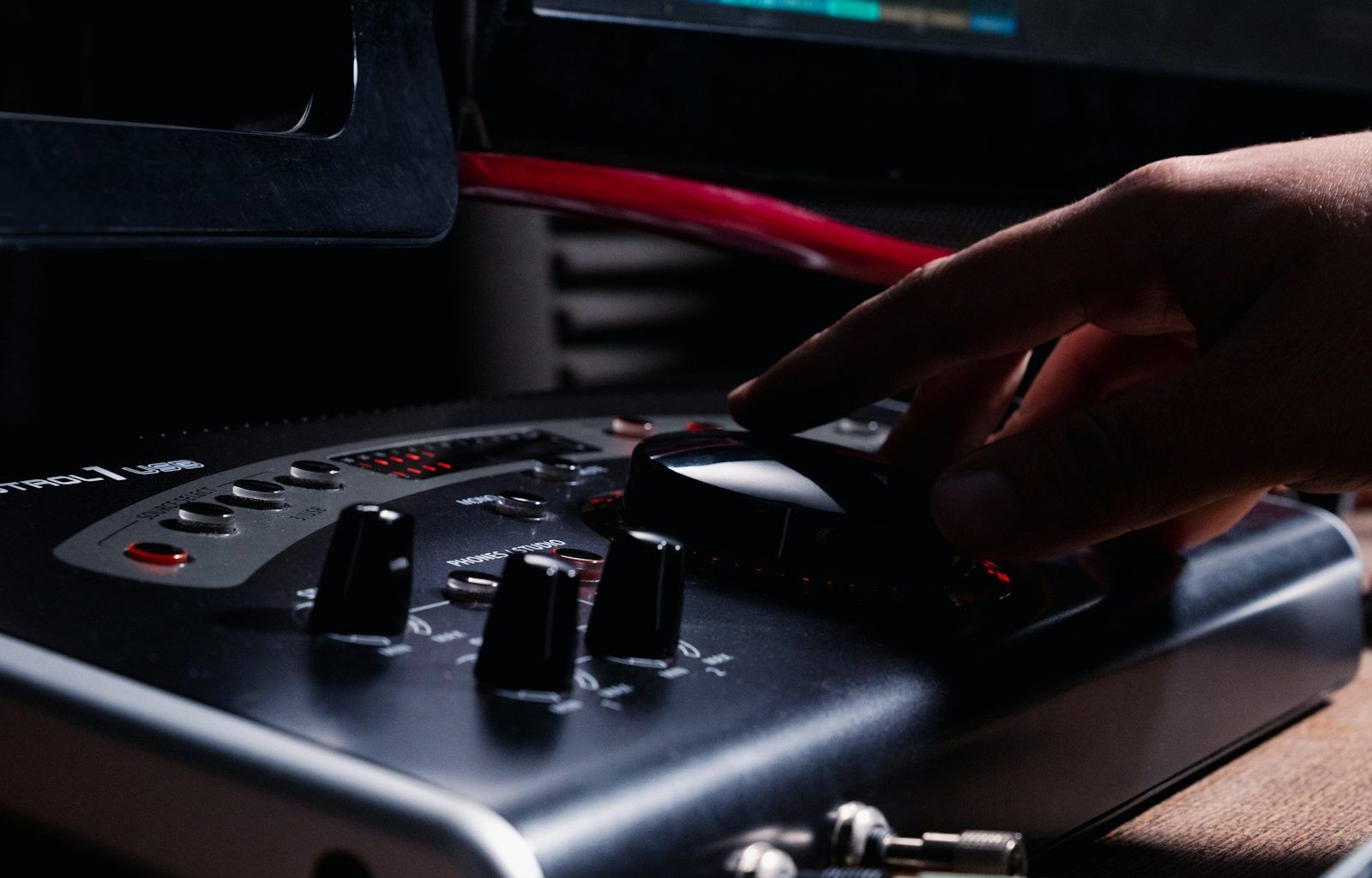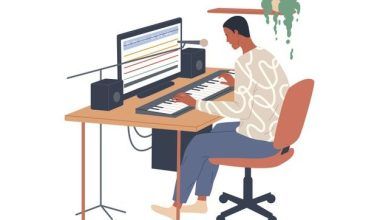Why Learn Music Production?
Music production is an exciting journey that lets you transform ideas into melodies that move people. Today, anyone with a passion for music can start producing, thanks to accessible tools and technologies. Whether you dream of creating your own beats, recording vocals, or composing soundtracks, learning how to produce music can open doors to endless creativity.
Understanding the Basics of Music Production
What is Music Production?
Music production is the process of creating, recording, and finalizing music. It involves several stages, including composing, arranging, mixing, and mastering. Each step adds layers of creativity and technicality to your track.
Why It’s Important to Learn?
Music production gives you control over your art. From choosing instruments to deciding how a track sounds, it puts you in the driver’s seat. Even if you’re a singer or instrumentalist, knowing the production process can help you collaborate better with others.
Essential Equipment for Music Production
1. Computer
Your computer is the heart of your studio. Whether you use a PC or Mac, ensure it has enough processing power to handle audio software smoothly.
2. Digital Audio Workstation (DAW)
DAW is the software where all the magic happens. Popular options include:
- FL Studio (beginner-friendly)
- Ableton Live (great for live performances)
- Logic Pro X (ideal for Mac users)
- GarageBand (free and beginner-friendly)
3. Audio Interface
This device connects your instruments and microphone to your computer, ensuring high-quality sound.
4. Microphones
For recording vocals or instruments, you’ll need a good microphone. A condenser microphone is a solid choice for beginners.
5. Headphones and Studio Monitors
Invest in quality headphones and monitors to hear the true sound of your track without distortion.
6. MIDI Keyboard
A MIDI keyboard helps you create melodies, chords, and beats easily.
Step-by-Step Guide: How to Produce Music
Step 1: Choose Your DAW
Start by selecting a DAW that fits your style. Spend some time exploring its features and watching tutorials to get comfortable.
Step 2: Learn Music Theory
Understanding basic music theory can make composing easier. Learn about scales, chords, and tempo to add depth to your tracks.
Step 3: Set Up Your Workspace
Create a comfortable workspace where you can focus. Ensure your setup minimizes distractions and allows easy access to your gear.
Step 4: Experiment with Sounds
Start by exploring sound libraries available in your DAW. Play with different instruments, beats, and samples to find what excites you.
Step 5: Record Your Music
Use your microphone or MIDI keyboard to record melodies, vocals, or instruments. Focus on getting clean, high-quality recordings.
Understanding the Production Process
1. Composing
This is the creative phase where you come up with melodies, beats, and lyrics.
2. Arranging
Arranging involves structuring your song. Decide the order of verses, choruses, and bridges to create an engaging flow.
3. Mixing
In mixing, you balance the volume of different tracks, apply effects like reverb and EQ, and make the song sound cohesive.
4. Mastering
Mastering polishes the track to ensure it sounds professional on all devices.
Tips to Improve Your Music Production Skills
- Practice Regularly: Like any skill, music production requires consistent practice.
- Learn from Tutorials: YouTube and online courses are goldmines for learning tricks and techniques.
- Collaborate: Work with other musicians to gain new perspectives.
- Experiment: Don’t be afraid to try unconventional methods or sounds.
- Seek Feedback: Share your tracks with friends or online communities for constructive feedback.
Common Mistakes to Avoid
- Skipping Music Theory: Even a basic understanding of theory can elevate your music.
- Overloading Tracks: Avoid cluttering your song with too many layers.
- Ignoring Feedback: Constructive criticism helps you grow.
- Skipping Mastering: A well-mastered track stands out.
How Deliver My Tune Helps Aspiring Producers
At Deliver My Tune, we provide tools and services to support your music production journey:
- AI Mastering: Make your tracks sound professional with advanced AI mastering tools.
- Music Distribution: Share your music on 100+ platforms, including Spotify and Apple Music.
- Artist Portfolio: Showcase your work with a sleek online portfolio.
Explore Deliver My Tune’s Services
Final Thoughts
Learning how to produce music is a fulfilling journey that combines art and technology. Start small, stay curious, and remember that every professional producer was once a beginner like you. With time, dedication, and the right tools, you’ll be creating tracks that leave a lasting impact.
Happy producing!
For further reading, explore these related articles:
For additional resources on music marketing and distribution, visit Deliver My Tune.






